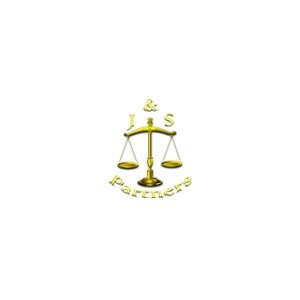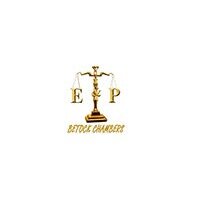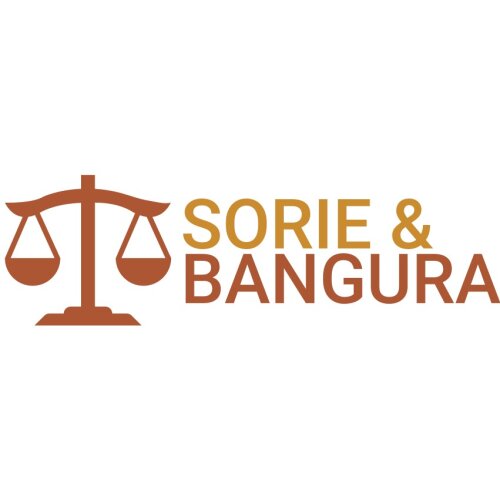Best Natural Resources Lawyers in Freetown
Share your needs with us, get contacted by law firms.
Free. Takes 2 min.
List of the best lawyers in Freetown, Sierra Leone
About Natural Resources Law in Freetown, Sierra Leone
Natural resources law in Freetown, Sierra Leone, deals primarily with the regulation and management of the country's abundant natural resources, which include minerals, forests, water, and land. Freetown, being the capital city, is a central hub for governmental activities and legal matters concerning these resources. The legal landscape is shaped by both national policies and international agreements to which Sierra Leone is a party, focusing on sustainable extraction, environmental conservation, and equitable distribution of benefits derived from natural resources.
Why You May Need a Lawyer
Understanding and navigating the complexities of natural resources law can be challenging. You may need legal assistance in several scenarios, such as:
- Engaging in commercial activities involving natural resources.
- Addressing disputes over land use and ownership.
- Ensuring compliance with local regulations in resource extraction industries.
- Protecting environmental rights against harmful business practices.
- Negotiating contracts and agreements related to resource exploitation.
A lawyer specializing in natural resources law can provide guidance, representation, and advocacy to protect your interests and ensure compliance with pertinent regulations.
Local Laws Overview
Sierra Leone's legal framework for natural resources is centered around the Mines and Minerals Act and the Forestry Acts, among others. Here are some key aspects:
- Licensing and Permits: Any extraction or usage of natural resources typically requires government-issued licenses or permits.
- Environmental Protection: Laws mandate assessments and mitigation strategies to minimize environmental impacts.
- Community Rights: Regulations are in place to ensure that local communities receive benefits and are consulted in resource-related decision-making processes.
- Sustainable Development: Policies aim to balance resource utilization with long-term environmental conservation.
Frequently Asked Questions
What is the process to obtain a mining license?
The process involves applying to the Ministry of Mines and Mineral Resources, including site inspection, environmental impact assessment, and payment of requisite fees.
Are there laws protecting communities affected by mining activities?
Yes, there are provisions for community consultations, compensation, and benefit-sharing schemes in mining projects.
How does the law ensure environmental protection in resource extraction?
The law requires operators to conduct Environmental Impact Assessments (EIAs) and implement management plans to reduce environmental damage.
Who is responsible for enforcing natural resource laws in Sierra Leone?
Primary enforcement bodies include the Ministry of Mines and Mineral Resources and the Environmental Protection Agency.
Can foreign companies invest in Sierra Leone's natural resources?
Yes, foreign investment is allowed, but companies must comply with local laws and regulations.
What should I do if I suspect illegal mining activities?
Report such activities to the Ministry of Mines and Mineral Resources or the local law enforcement authorities.
What role do traditional landowners play in resource management?
Traditional landowners are integral to decision-making, especially regarding land use and compensation negotiations.
How are disputes over natural resource ownership resolved?
Disputes are typically resolved through legal arbitration or civil court proceedings, guided by statutory and customary laws.
What constitutes illegal logging under Sierra Leonean law?
Illegal logging includes logging without a license, logging outside permissible areas, or violating environmental guidelines.
What penalties exist for non-compliance with natural resource laws?
Penalties range from fines and license revocation to legal prosecution, depending on the severity of the breach.
Additional Resources
For those seeking further information or assistance, consider the following resources:
- The Ministry of Mines and Mineral Resources
- The Environmental Protection Agency, Sierra Leone
- The Sierra Leone Chamber for Agribusiness Development
- Local NGOs working in environmental protection and community rights
Next Steps
If you require legal assistance in matters related to natural resources, consider the following steps:
- Consult with a legal professional specializing in natural resources law.
- Gather all relevant documentation, including licenses, environmental assessments, and contracts.
- Contact the appropriate government agency for guidance on specific legal requirements.
- Join local or regional seminars and workshops to gain a better understanding of your rights and responsibilities.
Take proactive measures to ensure compliance and protect your interests in any dealings involving Sierra Leone's natural resources.
Lawzana helps you find the best lawyers and law firms in Freetown through a curated and pre-screened list of qualified legal professionals. Our platform offers rankings and detailed profiles of attorneys and law firms, allowing you to compare based on practice areas, including Natural Resources, experience, and client feedback.
Each profile includes a description of the firm's areas of practice, client reviews, team members and partners, year of establishment, spoken languages, office locations, contact information, social media presence, and any published articles or resources. Most firms on our platform speak English and are experienced in both local and international legal matters.
Get a quote from top-rated law firms in Freetown, Sierra Leone — quickly, securely, and without unnecessary hassle.
Disclaimer:
The information provided on this page is for general informational purposes only and does not constitute legal advice. While we strive to ensure the accuracy and relevance of the content, legal information may change over time, and interpretations of the law can vary. You should always consult with a qualified legal professional for advice specific to your situation.
We disclaim all liability for actions taken or not taken based on the content of this page. If you believe any information is incorrect or outdated, please contact us, and we will review and update it where appropriate.













